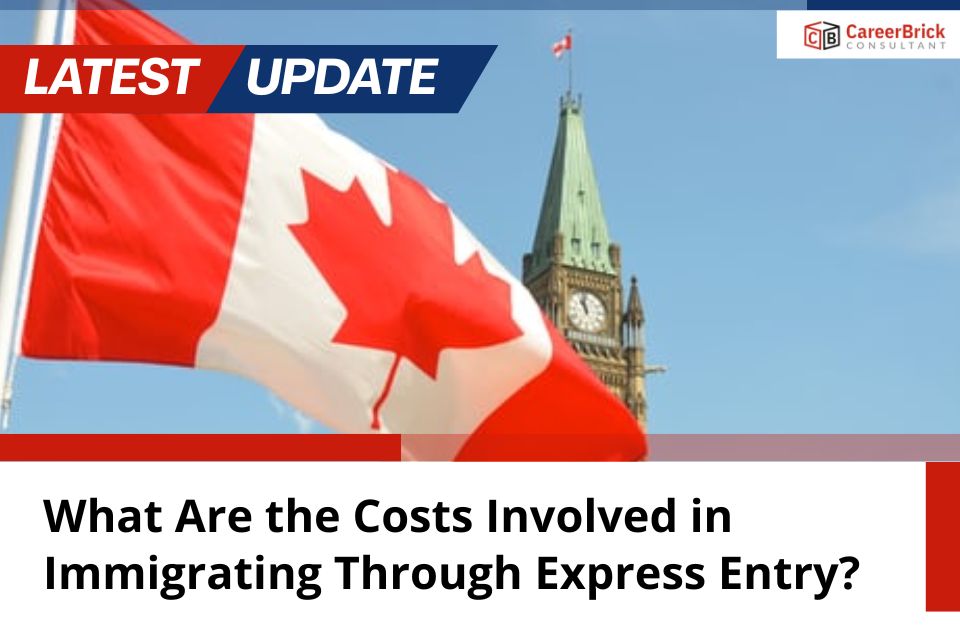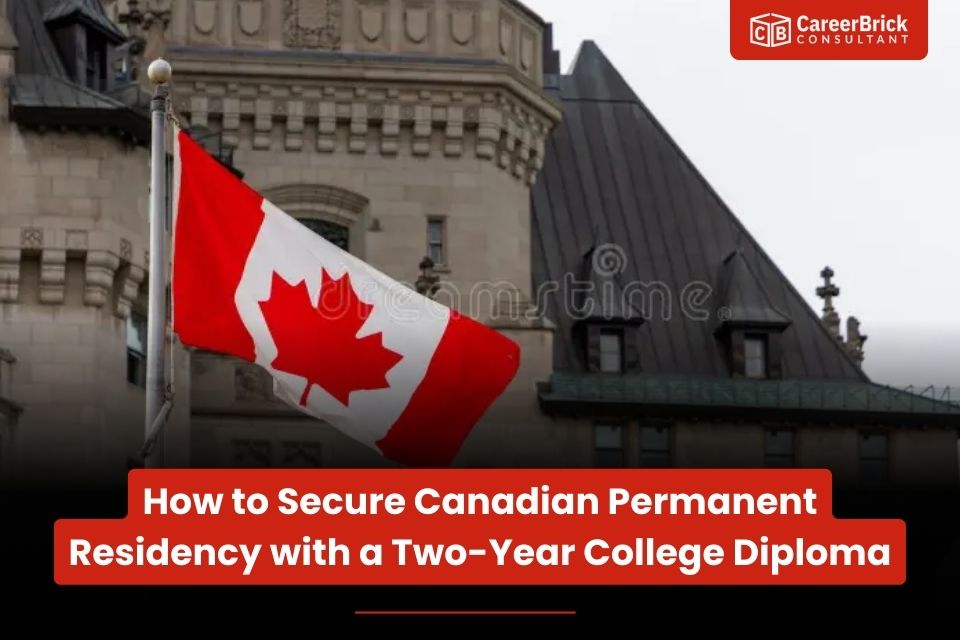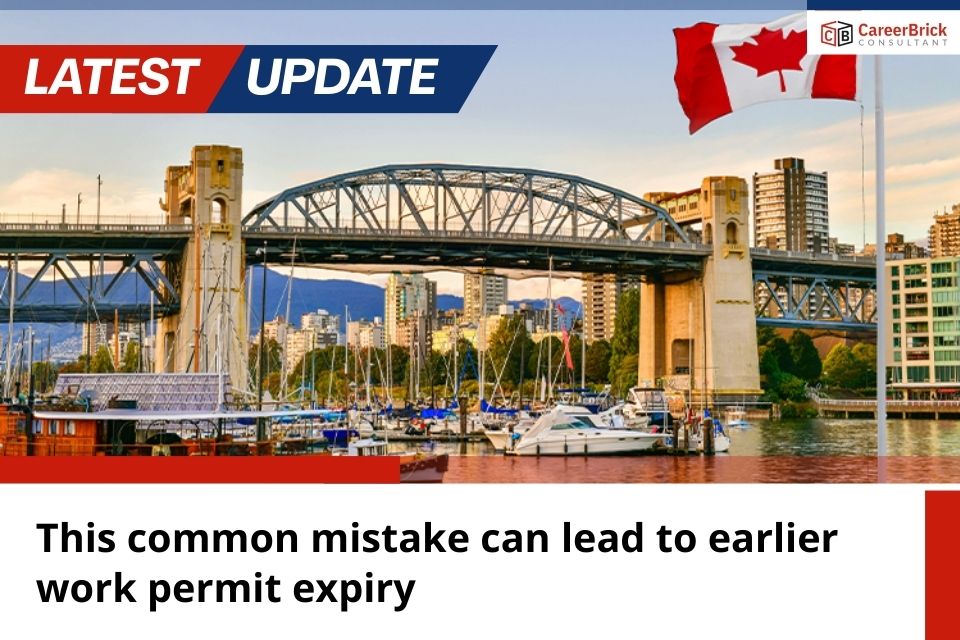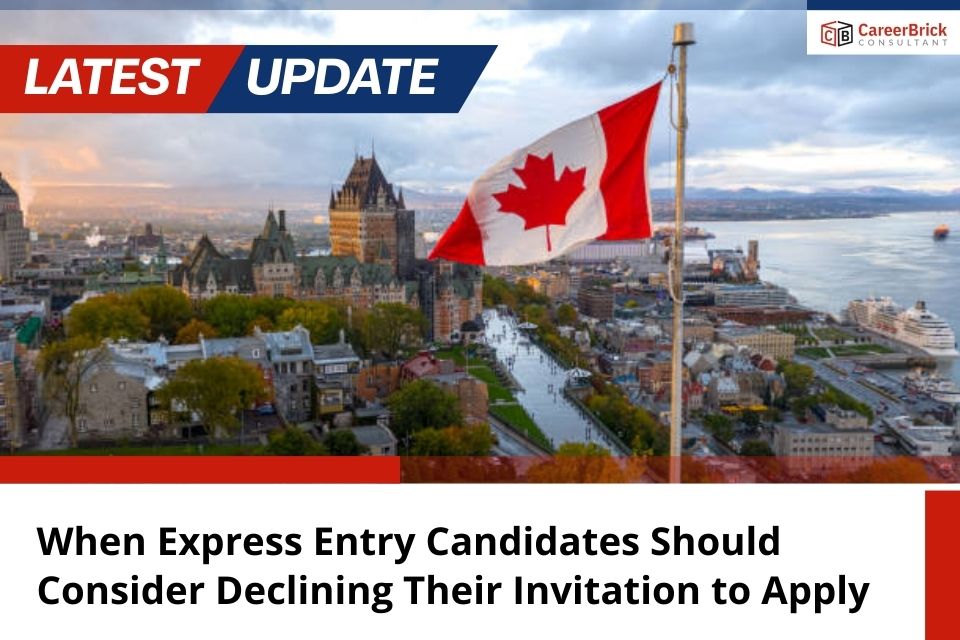Immigrating to Canada via the Express Entry system comes with several required fees as well as optional expenses you may need to prepare for.
Having a clear breakdown of these costs is crucial so you can budget effectively and avoid any surprises along the way.
In this guide, we’ll walk you through every potential expense linked to obtaining Canadian Permanent Residency (PR) through Express Entry—from application and biometrics fees to language tests and third-party services.
All amounts are listed in Canadian dollars (CAD).
Mandatory PR application fees
The table below outlines the total cost of submitting an application for PR under Extress Entry, both as a sole applicant and as an applicant including their spouse or common-law partner.
| Fee type | Fee amount - sole applicant | Fee amount - with spouse or common law partner |
| Application processing fee | $950 | $1,900 |
| Right of permanent residence fee | $575 | $1,150 |
| Biometrics fee* | $85 | $170 |
| Total amount | $1,610 | $3,220 |
| Including a dependent child | $260 (per child) | $260 (per child) |
| Total minimum amount | $1,870 | $3,480 |
The biometrics fee is $85 per person, with a maximum of $170 per family (two or more people). Biometrics are not required for children under 14 or adults over 79.
While you must pay the application processing fee(s) when submitting your application, paying the Right of Permanent Residence Fee (RPRF) and biometrics fee upfront can help prevent delays in processing.
If your application is refused, the RPRF will be refunded.
Third-party fees
Language testing: To create an Express Entry profile, you must take an approved language test.
IRCC currently accepts the following tests:
| Language | Language test provider | Test type |
| English | International English Language Testing System (IELTS) | IELTS General Training test |
| Canadian English Language Proficiency Index Program (CELPIP) | CELPIP-General test | |
| Pearson Test of English (PTE) | PTE Core test | |
| French | TEF Canada: Test d’évaluation de français | N/A |
| TCF Canada : Test de connaissance du français | N/A |
Language test fees typically range from $290 + tax to $450 + tax, though the exact cost may vary depending on your testing location.
The Test of English as a Foreign Language (TOEFL), offered by ETS, is also expected to be accepted by IRCC in the future—however, no official start date has been announced yet.
To be eligible for each federal Express Entry program, you must meet the following Canadian Language Benchmark (CLB) or Niveaux de compétence linguistique canadien (NCLC) requirements:
| Program | CLB/NCLC level |
| CEC | TEER 0 or 1: CLB/NCLC 7, all abilities |
| TEER 2 or 3: CLB/NCLC 5, all abilities | |
| FSWP | CLB/NCLC 7, all abilities |
| FSTP | Speaking and listening: CLB/NCLC 5 |
| Reading and writing: CLB/NCLC 4 |
Educational Credential Assessments (ECAs): If you completed your education outside of Canada and plan to submit an Express Entry profile under the Federal Skilled Worker Program (FSWP) or want to claim CRS points for foreign education (for any program), you must obtain an ECA.
You do not need an ECA to apply through the Canadian Experience Class (CEC) or the Federal Skilled Trades Program (FSTP).
ECA fees typically range from $200 to $310 + tax and delivery, depending on the designated organization completing the assessment.
If your documents are not in English or French, they must be translated by a certified translator.
Board-certified document translations: Any foreign-language document submitted to IRCC must include the original document plus an official English or French translation, or a certified copy of the original in English or French.
Certified translation fees generally fall between $25 and $70 per document, depending on the translator, turnaround time, and the complexity or length of the document.
Immigration Medical Exam (IME): As of August 21, 2025, all Express Entry applicants—and their accompanying family members—must complete an upfront IME, which must be uploaded with the PR application. Only IRCC-approved panel physicians can perform these exams.
Medical exams ensure applicants are not medically inadmissible to Canada and typically cost $140–$280 per person.
Police Clearance Certificates: Applicants and each family member aged 18 or older must submit police certificates for every country where they have lived for at least six consecutive months in the past 10 years. These checks confirm whether an applicant may be criminally inadmissible to Canada.
Police certificates are not required for any period spent in Canada, nor for any time in other countries before the age of 18.
Costs vary by country. To provide context, we’ll look at the typical fees in the top five countries that issued Confirmation of Permanent Residence (COPR) documents in the first quarter of 2025.
| Country | Number of COPRs issued | Police certificate cost | Considerations |
| India | 34,245 | $8–$38 | Exact cost may depend on external factors and speed with which one requires these documents. |
| Philippines | 7,460 | $4–$39 | N/A |
| China | 5,815 | $40–$120 | Difficult to obtain overseas. Third-party agency intervention might be required, which will result in higher costs. |
| Cameroon | 4,960 | $3–$207 | N/A |
| Nigeria | 4,525 | $5–$180 | Varies depending on location and exchange rate fluctuations. |
Other Miscellaneous Fees
Beyond the expenses already outlined, you may encounter several additional costs when immigrating through Express Entry. These can include, but are not limited to:
-
Passport renewal
-
Notarization services
-
Courier or postage fees
-
Document scanning or printing
-
Updating or ordering additional ECA reports
-
Retaking language tests
-
Travel expenses for biometrics or medical exam appointments
-
Fees for obtaining supporting documents
-
Airfare (if immigrating from outside Canada)
If you receive an Invitation to Apply (ITA) and complete your first landing, your first PR card is free, provided you submit your mailing address and photo within 180 days. If you miss this deadline, you must pay $50 for a new PR card application.
Immigration Lawyer (Optional)
Many applicants hire an immigration lawyer for professional support. Legal fees vary based on the firm and the complexity of your case, but generally range from $2,000 to $5,000.
Some individuals seek limited guidance—such as help with creating an Express Entry profile—while others prefer full-service representation, including preparing and submitting the PR application after receiving an ITA.
Benefits of working with an experienced immigration lawyer include:
-
Maximizing your CRS score to improve your ITA chances
-
Handling complex cases (e.g., intricate work histories, family situations, previous removals, or admissibility concerns)
-
Thorough document preparation to ensure all submissions meet IRCC standards
-
Avoiding costly errors, delays, refusals, or misrepresentation (which can result in fines, charges, or a five-year ban)
-
Personalized advice and risk mitigation throughout the entire process
-
Greater peace of mind during a high-stakes application
Settlement Funds
While not a direct fee, most applicants must demonstrate they have sufficient settlement funds to support themselves and their family upon arriving in Canada—unless applying under the CEC or holding a valid job offer.
The required amount depends on family size. For a single applicant, you must show at least $15,263 in available funds (if applicable) when submitting your PR application and when your PR visa is issued.
About the Express Entry System
Express Entry is Canada’s online system for managing immigration applications from skilled workers.
To qualify, you must be eligible under one of the following federal economic programs:
-
Canadian Experience Class (CEC)
-
Federal Skilled Worker Program (FSWP)
-
Federal Skilled Trades Program (FSTP)
Once eligible, you can create and submit your Express Entry profile—free of charge—to enter the candidate pool.
Your profile is evaluated using the Comprehensive Ranking System (CRS), which assigns a score between 0 and 1,200 based on factors like age, education, language skills, and work experience.
The federal government conducts periodic Express Entry draws, inviting top-scoring candidates to apply for permanent residence.
To apply for PR, you must:
-
Log into your IRCC secure account
-
Complete the online application
-
Upload all required documents listed in your personalized checklist
-
Pay the necessary fees
-
Submit your application for processing







